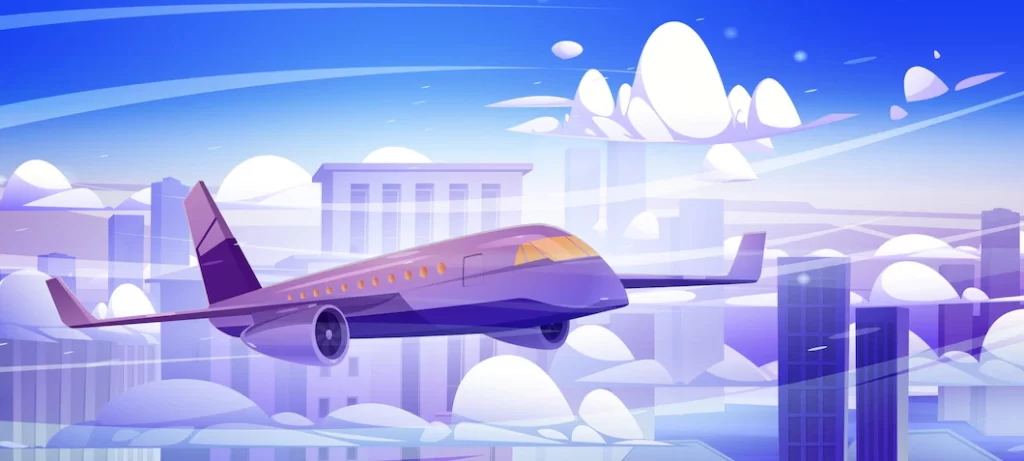According to a report from the Wall Street Journal, Delta Air Lines is looking to add free Wi-Fi to a significant portion of its flights from 2023 onwards. Illustrating a long-awaited development for in-flight technology, Wi-Fi’s exclusion is commonly regarded as a key frustration with air travel. Representing greater cultural shifts towards complete Wi-Fi coverage, as well as new technological opportunities, there’s hope that this move will soon catch on.
Though the desire for in-flight Wi-Fi has been known for years, expense issues and complications with physical implementation have left it years behind its ground-based cousins. Though Delta is taking one of the more forward-thinking approaches, there are still concerns that shared bandwidth could limit what kind of uses in-air internet could be used for.
Possibilities of In-Air Internet
Keeping tabs on your social media feed or keeping up comms with friends on the ground, there are plenty of benefits to in-air internet. Online gaming is perhaps the most popular pastime for passengers, especially on 4+hr flights when a movie or two just won’t cut it. What better way to get through a long flight than keeping the mind busy with easy-access mobile games? Online casinos are a key example, as one of the most popular and accessible online gaming options. Accessing these means browsing what’s on offer, accessing bonuses like free spins like those included in Paddy’s latest casino offers, and navigating their game pages. Since slots and the table games here are small in file size and don’t require much latency, the play could continue without issue. This doesn’t apply to every other type of internet use, however.
Another common use that we’d expect to see for in-air internet is for users to stream media to their tablets and mobile phones. While many Delta flights offer video features through seat screens, users tend to prefer the selection and convenience of their accounts, which can be problematic. Video streaming, especially in high-definition for a system like Hulu or YouTube can use a lot of bandwidth. Since bandwidth is shared by the whole plane, many simultaneous streams can place significant stress on a system.
Adding to the concerns of bandwidth sharing is the risk made by people who, knowingly or not, use the bandwidth for large file downloads. Finding a Windows or Adobe Premier update in the way or losing traffic thanks to a computer virus can cost even more bandwidth than streaming would. All it takes is a few of these people on a big flight, and issues can appear for everyone else.
Culture, Technology, and Licensing
Three key components play into the integration of Wi-Fi onto Delta’s flights, technology, legal complexities, and culture. In terms of technology, it’s the connections from Delta’s providers, Intelsat and Viasat that provide the bandwidth from which to work. As covered at The Verge, Starlink was also considered but considered unsuitable for the time being. Over time, improving technology decreases the cost of in-air internet and increases the speed, but even basic upgrades can take planes out of the air for days.
Adding to this complexity is how every part of technology that is added to a plane needs to acquire a safety certificate from the FAA. Business Insider notes this takes time and money, and the process is not always simple. Further challenges are then added by how each fleet type needs a special certification, adding more complications to an already laborious process.
With these complications aside, the ubiquity of mobile phone use in our modern lives has meant that with each new year, we require constant internet access more and more. It’s become a fundamental component of how we live, whether regarding work, entertainment, education, or communication. Cultural demands for the internet continue to grow, and air transport was never going to be able to avoid this reality forever.
What it means for Delta
The latest move by Delta to adopt free Wi-Fi on most of its flights illustrates a tipping point. On the balancing of technology and licensing costs versus the cultural need for internet connectivity, the internet has finally won out. Eventually, this standard should be adopted by most airlines, though budget air travel could remain Wi-Fi-free for the foreseeable future.
As for how smooth the rollout will go, that much will remain to be seen. While low-demand uses will probably be suitable for everyone, a lack of awareness or care about fair data sharing will inevitably cause problems until some sort of bandwidth gating is implemented. Until then, the usefulness of in-air Wi-Fi could be a gamble, but at least it’s not one we have to pay for.
